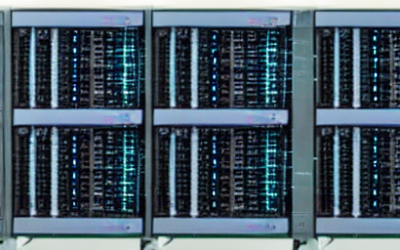Java is a popular programming language that is used for developing a wide variety of software applications. There are numerous Java frameworks available for developers to use to create their applications. These frameworks provide developers with a set of components that can be used to create their applications quickly and easily.
Tech Blog
Tech Insights, Information, and InspirationNext.js vs React.js
Next.js vs React.js are both powerful and popular JavaScript libraries, but they serve different purposes. Next.js is used for building universal web applications with server-side rendering, while React.js is used for building user interfaces with reusable components.
Functional Programming vs OOP
Both OOP and Functional Programming have their advantages and disadvantages. OOP is great for code re-use and scalability, but can lead to complexity and hard to debug code. FP is great for code readability and maintainability, but can lead to code that is difficult to optimize and parallelize. Ultimately, the best choice of programming paradigm depends on the project and the programmer’s preferences.
Kotlin vs Java
Kotlin vs Java are both popular programming languages used for developing applications. Both languages have a lot of similarities in terms of syntax, data types, object-oriented programming, and more. However, they also have several key differences.
What is Kotlin? An Introduction
Kotlin is a modern open-source programming language developed by JetBrains, the makers of the popular IntelliJ IDEA Java IDE. It combines object-oriented and functional programming features and is designed to be a pragmatic language with a simple and concise syntax. Kotlin is interoperable with Java, which means that it can be used to develop Android applications.
Top Programming Languages
In today’s tech-driven world, it is essential to have knowledge of the top programming languages. Programming languages are used to create software and apps, and to communicate with computers. The top programming languages today are Python, JavaScript, Java, C/C++, C#, PHP, and SQL.
Enterprise App Development
Enterprise app development is the process of creating and developing applications specifically designed to meet the needs of businesses. These apps are designed to help businesses manage their operations, increase efficiency, and improve customer engagement.
DevOps vs DevSecOps
DevOps and DevSecOps are two related concepts in the field of software development and operations. DevOps is a term that describes the collaboration between software developers and IT operations teams to deliver software faster and more reliably. DevSecOps is an extension of DevOps that incorporates security considerations into the development and delivery process.
ECM Software
ECM (Enterprise Content Management) software is a type of software used to capture, store, manage, and deliver content across an organization. This content can include documents, images, videos, and other forms of digital information. ECM software provides a secure platform for storing and sharing important content, as well as tools for managing and controlling access to information.
Infrastructure as Code (IaC)
Infrastructure as Code (IaC) is a type of DevOps practice that enables organizations to manage and provision their IT infrastructure using software code. It is an approach to managing and configuring computing infrastructure (networks, virtual machines, storage, and so on) in a programmatic way. This includes the automation of manual processes, such as the deployment and configuration of cloud resources.
Get In Touch
UseTech Design, LLC
TROY, MI • BLOOMFIELD HILLS, MI
Call or text +1(734) 367-4100










